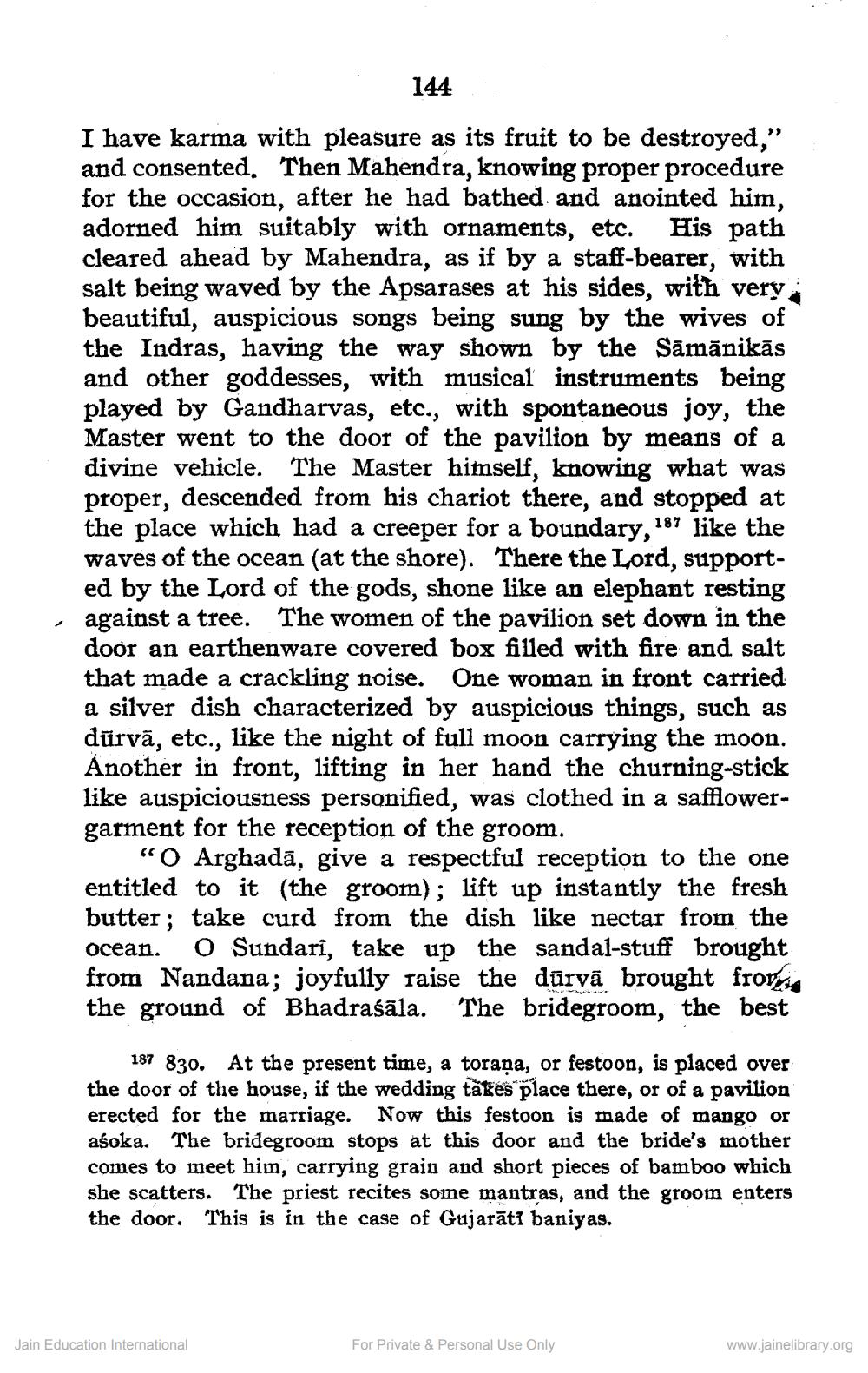________________
"
144
I have karma with pleasure as its fruit to be destroyed," and consented. Then Mahendra, knowing proper procedure for the occasion, after he had bathed and anointed him, adorned him suitably with ornaments, etc. His path cleared ahead by Mahendra, as if by a staff-bearer, with salt being waved by the Apsarases at his sides, with very beautiful, auspicious songs being sung by the wives of the Indras, having the way shown by the Sāmānikās and other goddesses, with musical instruments being played by Gandharvas, etc., with spontaneous joy, the Master went to the door of the pavilion by means of a divine vehicle. The Master himself, knowing what was proper, descended from his chariot there, and stopped at the place which had a creeper for a boundary, 187 like the waves of the ocean (at the shore). There the Lord, supported by the Lord of the gods, shone like an elephant resting against a tree. The women of the pavilion set down in the door an earthenware covered box filled with fire and salt that made a crackling noise. One woman in front carried a silver dish characterized by auspicious things, such as dūrvā, etc., like the night of full moon carrying the moon. Another in front, lifting in her hand the churning-stick like auspiciousness personified, was clothed in a safflowergarment for the reception of the groom.
"O Arghadā, give a respectful reception to the one entitled to it (the groom); lift up instantly the fresh butter; take curd from the dish like nectar from the ocean. O Sundari, take up the sandal-stuff brought from Nandana; joyfully raise the durva brought from the ground of Bhadrasala. The bridegroom, the best
187 830. At the present time, a torana, or festoon, is placed over the door of the house, if the wedding takes place there, or of a pavilion erected for the marriage. Now this festoon is made of mango or aśoka. The bridegroom stops at this door and the bride's mother comes to meet him, carrying grain and short pieces of bamboo which she scatters. The priest recites some mantras, and the groom enters the door. This is in the case of Gujarati baniyas.
Jain Education International
For Private & Personal Use Only
www.jainelibrary.org




